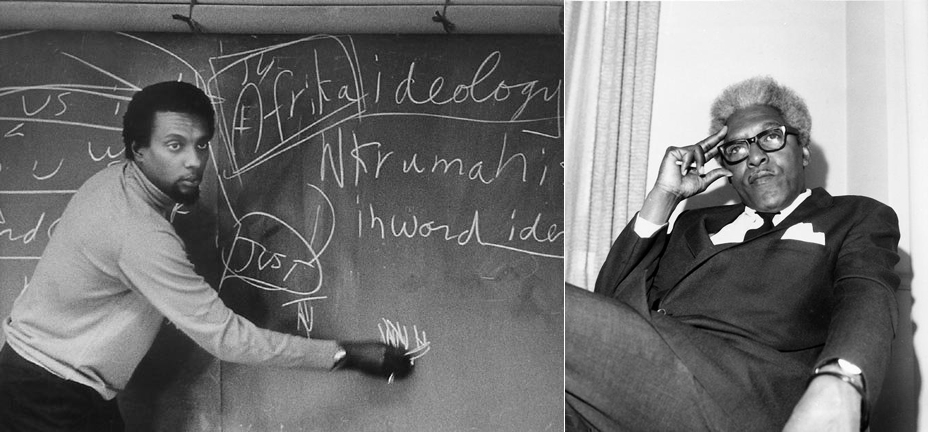Chris Cutrone
The following was written for distribution as a flyer [PDF] at the occupation protests.
HOW ARE WE to regard the history of revolutions? Why do revolutions appear to fail to achieve their goals? What does this say about consciousness of social change?
One common misunderstanding of Marx (against which, however, many counter-arguments have been made) is with respect to the supposed “logic of history” in capital.
The notion of a “historical logic” is problematic, in that there may be assumed an underlying historical logic that Marx, as a social scientist, is supposed to have discovered. Marx’s (and Engels’s) idea of “science,” however, is not the conventional one of recognizing objective facts independent of the scientific observer, but rather the Hegelian one of knowledge aware of its own conditions of possibility.
This philosophical approach to “science” began with Kant, and regards theoretical concepts as self-critical reflections arising from practice. In other words, Hegelian “science,” in the original Marxist sense of Marx and Engels’s use of the term, is the attempt to raise practice to greater self-awareness. “Consciousness” is formed in the dialectic of theory and practice. Furthermore, consciousness develops in a dialectic with “social being.”
This is because Marxism was not concerned with how social being “determines” consciousness, but with how both social being and consciousness can change. It was the unfreedom of this process of change in modern society that Marx sought to address in his critical account of capital. For Marx, the “logic of capital” was not a logic at all.
Capital was, in Marx’s view, a process of social disintegration, in fits and starts, and no wheel of history — at least not in terms of freedom.
In what way was Marxist thought and political practice “critical?” Marx sought to raise greater awareness of the potential possibility of the transformation of society in freedom, which meant as a function of changes in consciousness as well as in social being. Following Kant and Hegel, Marxism asks: is consciousness merely to be the Stoical recognition and submission to inevitable change?
How are we to regard the history of the Left?
One plausible way regards the history of political change as belated response to social development. In this view, revolutions come about as adjustments to processes of social change already underway or completed. Political revolution crowns the achievement of social transformation, as the old order reveals itself to be already gone. Knowledge appears only in retrospect: according to Hegel, the “Owl of Minerva flies at dusk.”
But what of the obverse? What if revolution was only the delicate beginning of change, and consciousness its dawning awareness? Then failure would be explicable: failure to think or act.

L: Stokely Carmichael, leader of the Black Power turn of the Civil Rights Movement; R: Bayard Rustin.
As Bayard Rustin described the Black Power turn of the late 1960s, “Passionate self-assertion can be a mask for accommodation.” ((Quoted in John D’Emilio, Lost Prophet: The Life and Times of Bayard Rustin (New York: Free Press, 2003), 475. See also: Rustin, “The Failure of Black Separatism,” Harper’s Magazine (January 1970); Adolph Reed, “Black Particularity Reconsidered,” Telos 39 (1979), later expanded as “The ‘Black Revolution’ and the Reconstitution of Domination,” in Reed, Stirrings in the Jug: Black Politics in the Post-Segregation Era (Minneapolis, University of Minnesota Press, 1999); and Reed, “The Limits of Anti-Racism: Vague Politics about a Nearly Indescribable Thing,” Left Business Observer 121 (September 2009), available on-line at: <http://www.leftbusinessobserver.com/Antiracism.html>.)) This spoke to the entire 1960s moment. In hindsight, it is difficult to disagree with this diagnosis.
At the time, such a disenchantment of protest was regarded as a conservative response to a potentially revolutionary situation.
But the point was that the apparent revolution was not the one the revolutionaries claimed to want, but rather one that used their discontents for other purposes. This involves a complex theory of social change that is worth considering. How might avowedly “revolutionary” ideology repress actual possibilities?
We are living in a time of change. The question is whether and how we can claim to be bringing this change about. Or, is the change already happening, beyond our control, and are we merely, in protest, registering our pain in the transition, as we accommodate and adapt to it?
Can politics be something more and other than the process of submission to domination? Is the goal of emancipation possible? History seems to show otherwise. ((See Cutrone, “Egypt, or, history’s invidious comparisons: 1979, 1789, and 1848,” Platypus Review 33 (March 2011).))
If we imagine that history is on our side, we threaten to rationalize a course of change already underway that we have yet to control. Our protest against it may already be our resignation to it, in the guise of calling us to task.
The world is changing. The question is whether and how we are a function of that change. | §
Originally published in The Platypus Review 42 (December 2011–January 2012).